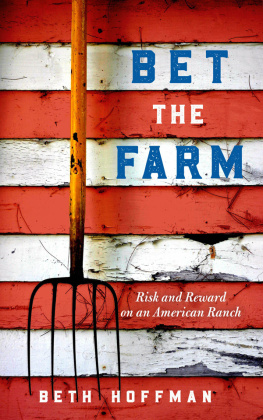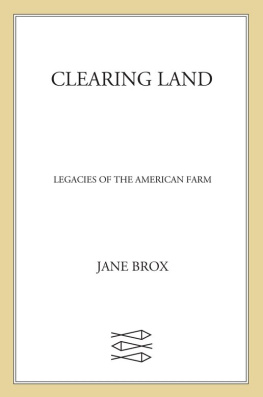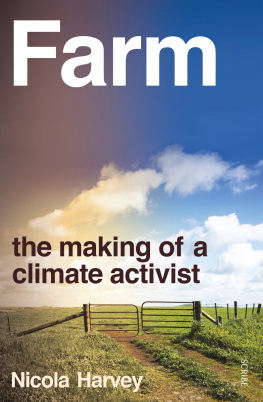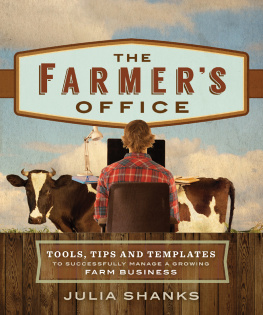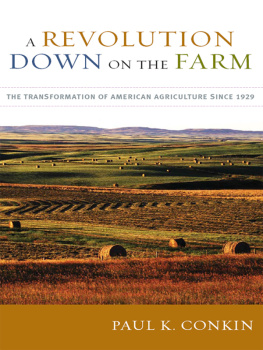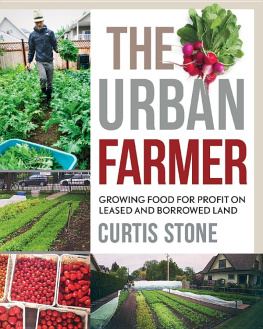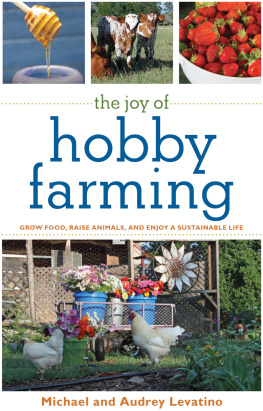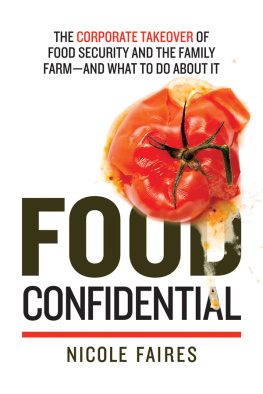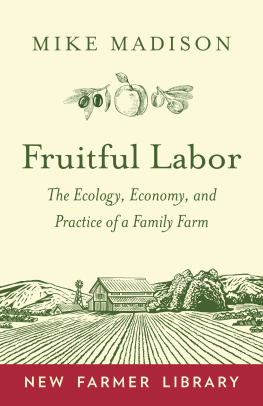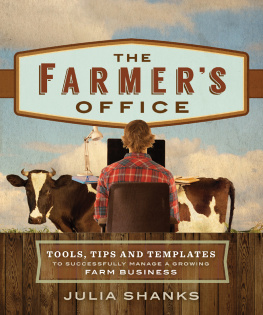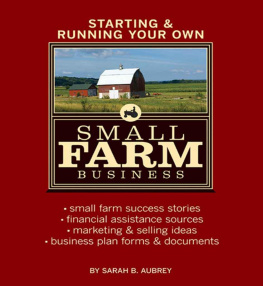About Island Press
Since 1984, the nonprofit organization Island Press has been stimulating, shaping, and communicating ideas that are essential for solving environmental problems worldwide. With more than 1,000 titles in print and some 30 new releases each year, we are the nations leading publisher on environmental issues. We identify innovative thinkers and emerging trends in the environmental field. We work with world-renowned experts and authors to develop cross-disciplinary solutions to environmental challenges.
Island Press designs and executes educational campaigns, in conjunction with our authors, to communicate their critical messages in print, in person, and online using the latest technologies, innovative programs, and the media. Our goal is to reach targeted audiencesscientists, policy makers, environmental advocates, urban planners, the media, and concerned citizenswith information that can be used to create the framework for long-term ecological health and human well-being.
Island Press gratefully acknowledges major support from The Bobolink Foundation, Caldera Foundation, The Curtis and Edith Munson Foundation, The Forrest C. and Frances H. Lattner Foundation, The JPB Foundation, The Kresge Foundation, The Summit Charitable Foundation, Inc., and many other generous organizations and individuals.
The opinions expressed in this book are those of the author(s) and do not necessarily reflect the views of our supporters.
2021 Beth Hoffman
All rights reserved under International and Pan-American Copyright Conventions. No part of this book may be reproduced in any form or by any means without permission in writing from the publisher: Island Press, 2000 M St. NW, Suite 480-B, Washington, DC 20036-3319.
Library of Congress Control Number: 2021936682
All Island Press books are printed on environmentally responsible materials.
Manufactured in the United States of America
10 9 8 7 6 5 4 3 2 1
Keywords: agricultural economics; agriculture subsidies; beginning farmer; BIPOC farmers; cattle ranching; contract farming; co-op; cover cropping; family farm; Farm Bill; Farm Transition; food system; grass-fed beef; grass-finished beef; hog confinement; organics; regenerative agriculture; rural development; sustainable agriculture; USDA
ISBN-13: 978-1-64283-160-3 (electronic)
Hey, Dad, I did it.
I wish you were here to read it.
Chapter 1
The Simple Life?
TRUTH BE TOLD, I THOUGHT I KNEW A LOT about farming. While Id never farmed, Id spent more than twenty years covering food and agriculture as a reporter. Traveling from California to Italy, India to Michigan, Id visited farmers all over the world and learned about their lives, their struggles and successes. The idea of running a farm of my own felt like a gift, the culmination of my lifes work.
And so a few years back, this suburban girl from New Jersey, living in big-city San Francisco, moved to a farm in rural Iowa, learned in her mid-forties how to build a fence, and made a fool of herself asking stupid questions like Do the cows have names? And although much about the environmental aspects of farming were familiar from my reporting days, the daily cultural and economic surprises were startling; I felt as if I had been cast in an updated 2020 remake of the old fish-out-of-water television comedy Green Acres. I quickly realized that reporting on farming and doing it myself were two very different things.
My husband, John, grew up on said farm in south central Iowa raising corn, pigs, cattle, and soybeans. In fact, John is the fifth generation of Hogelands to farm this piece of land, with its rolling hills, pockets of forest, tall prairie grasses, and, until the spring of 2019, acres and acres of corn and soybeans. As he puts it, I spent summers immersing myself in the creeks and ponds, and winters tramping over the frozen, snow-covered hills. Spring and fall were for hunting and gathering, finding what the woods and streams had produced in silent bounty. All of my fiber knows that farm, and it fills me up with its life.
In other words, the farm is in Johns blood. His great-great-grandfather James Ship Hogeland first came west from Indiana in 1851 as a surveyor for the railroad. It is said he loved the beauty of southern Iowa so much that he returned and bought land after his job was done. Two generations later the land was still in the family, the farm run by Lola and Pete Hogeland. Pete was also a banker, who, family legend has it, excused his neighbors loans during the Great Depression in the 1930s, causing himself financial ruin. Then there were Johns grandparents, Lloyd and Ellen Hogeland, who farmed the land until Johns parents, Dorothy Lynn (known to family as both Dot and Lynn) and Leroy, arrived in the 1960s, took out huge loans, and together weathered the farm crisis of the 1980s. Hogelands worked and struggled on the same land generation after generation, forming stronger bonds with every nook and cranny of the landscape as time passed.
I, on the other hand, spent much of my life living in East or West Coast cities, going to plays and concerts,and frequenting museums. And even though I grew up in the Garden State, I did not know anyone who tended a garden, let alone a farm. Land to me meant a place where people built a weekend house in the country, not a multigenerational home where deep, spiritual connections to the creeks and hills were forged. While John immersed himself in the ponds of his familys farm, I went to summer camp at the Bronx Zoo.
So my move to a midwestern farm in middle-of-no-where Iowa had many in my life wondering if I would be able to hack it. And to be honest, I wondered too. But not for the reasons they thought.

The first time Iowa entered my consciousness was the day I met John. We were neighbors in a three-apartment row house in Berkeley, California, where I had moved for grad school. He had just returned from visiting family in Iowa with his two young sons, he told me after introducing himself, a trip they took every summer. Iowa? I asked. Yes, he stated proudlyIowa. In fact, he informed me, he planned to move back there and take over his familys farm as soon as his children were grown.
Over the next six months, John went from being an acquaintance to a close friend to something much more. When we married, the dream of moving to Iowa was still a good ten years off, and so I said Id think about it. In the meantime, we spent weeks every summer on the farm with the kids, rocking on the porch swing, watching the lightning bugs, and swimming in the pond at the crack ofdawn. We helped build fences and chased down escaped cattle, cleaned out old sheds, and picked chanterelles in the forest. I learned to drive the tractor around in circles cutting hay and went fishing in the dimming light of the day.
All the while, I was cultivating my own connection to the land and began to dream my own dreams of farming it. There was a certain badass feeling I got from the simple act of putting on my red rubber boots and strutting out into the fields to work, a freedom in sweating more than I had ever sweat, and feeling cleansed by it. And at the end of the day, there was a deep satisfaction in looking out onto the horizon at the new fence or recently moved cows chomping on fresh grass and saying, I did that. I began to know in my bones that I wanted to spend more of my time outside, where my senses were alive with sounds and sights and at least some of the work I did was physical.
But there were several huge roadblocks in the way of our moving to Iowa, aside from the inevitable culture shock I was to experience. The biggest problem was that someone was already running the farm: Johns dad, Leroy, was officially the man in charge and had been for more than fifty years. Although Leroy was already seventy-eight years old when John and I married in 2010, he was a spry seventy-eight, and he had no intention of simply turning the operation over to us. He had his (justifiable) doubts about whether I would ever really be persuaded to quit my job as a university professor and move to Iowa from San Francisco. And during Johns absence from the farmfor thirty years, Leroy had crafted his own plans for how the land was to be managed to support him in his old age.

